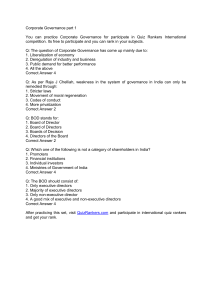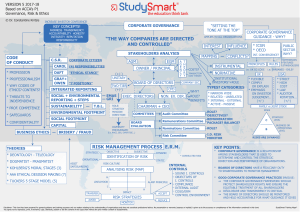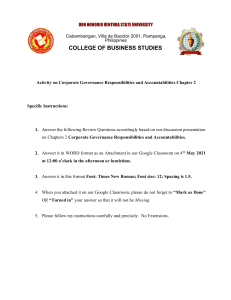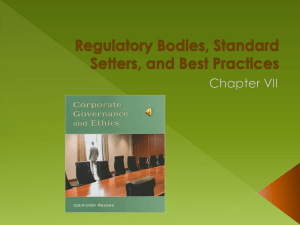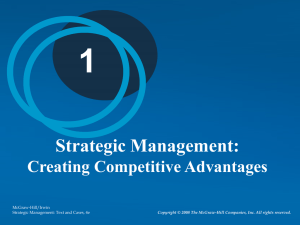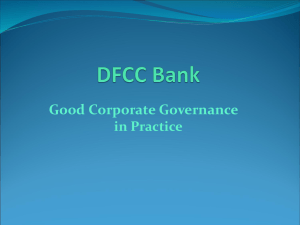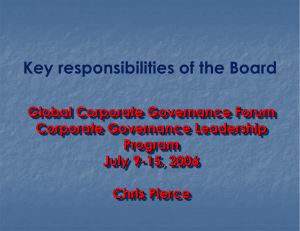Mgmt 4800 exam 1 study guide
advertisement
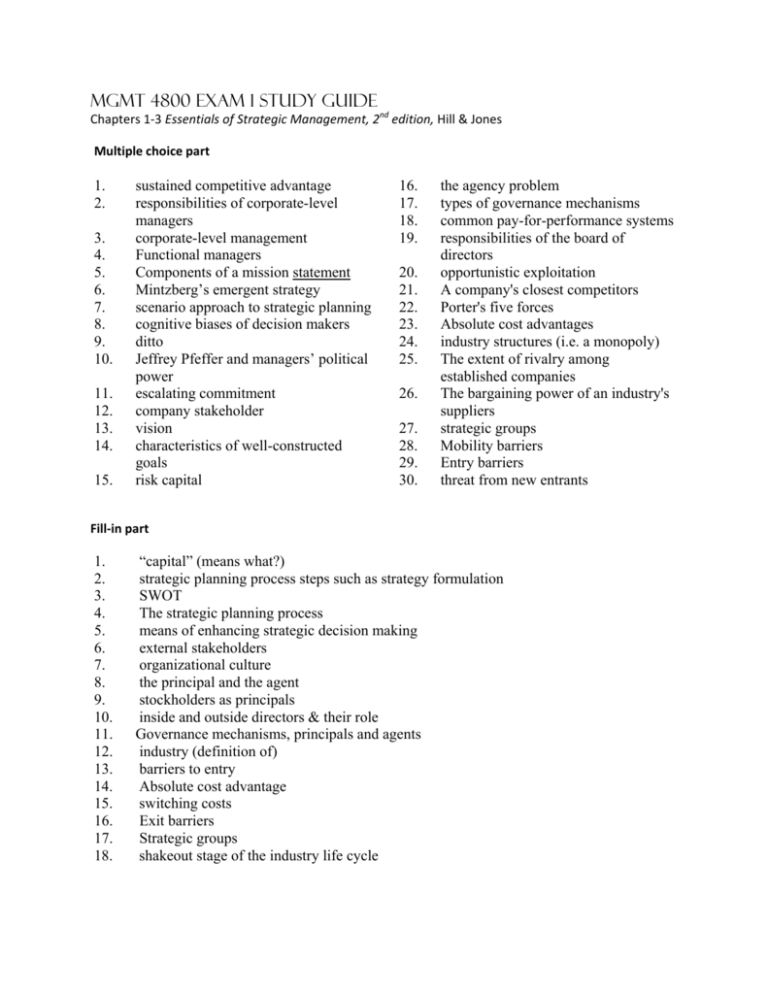
Mgmt 4800 exam 1 study guide Chapters 1‐3 Essentials of Strategic Management, 2nd edition, Hill & Jones Multiple choice part 1. 2. 3. 4. 5. 6. 7. 8. 9. 10. 11. 12. 13. 14. 15. sustained competitive advantage responsibilities of corporate-level managers corporate-level management Functional managers Components of a mission statement Mintzberg’s emergent strategy scenario approach to strategic planning cognitive biases of decision makers ditto Jeffrey Pfeffer and managers’ political power escalating commitment company stakeholder vision characteristics of well-constructed goals risk capital 16. 17. 18. 19. 20. 21. 22. 23. 24. 25. 26. 27. 28. 29. 30. the agency problem types of governance mechanisms common pay-for-performance systems responsibilities of the board of directors opportunistic exploitation A company's closest competitors Porter's five forces Absolute cost advantages industry structures (i.e. a monopoly) The extent of rivalry among established companies The bargaining power of an industry's suppliers strategic groups Mobility barriers Entry barriers threat from new entrants Fill‐in part 1. 2. 3. 4. 5. 6. 7. 8. 9. 10. 11. 12. 13. 14. 15. 16. 17. 18. “capital” (means what?) strategic planning process steps such as strategy formulation SWOT The strategic planning process means of enhancing strategic decision making external stakeholders organizational culture the principal and the agent stockholders as principals inside and outside directors & their role Governance mechanisms, principals and agents industry (definition of) barriers to entry Absolute cost advantage switching costs Exit barriers Strategic groups shakeout stage of the industry life cycle

